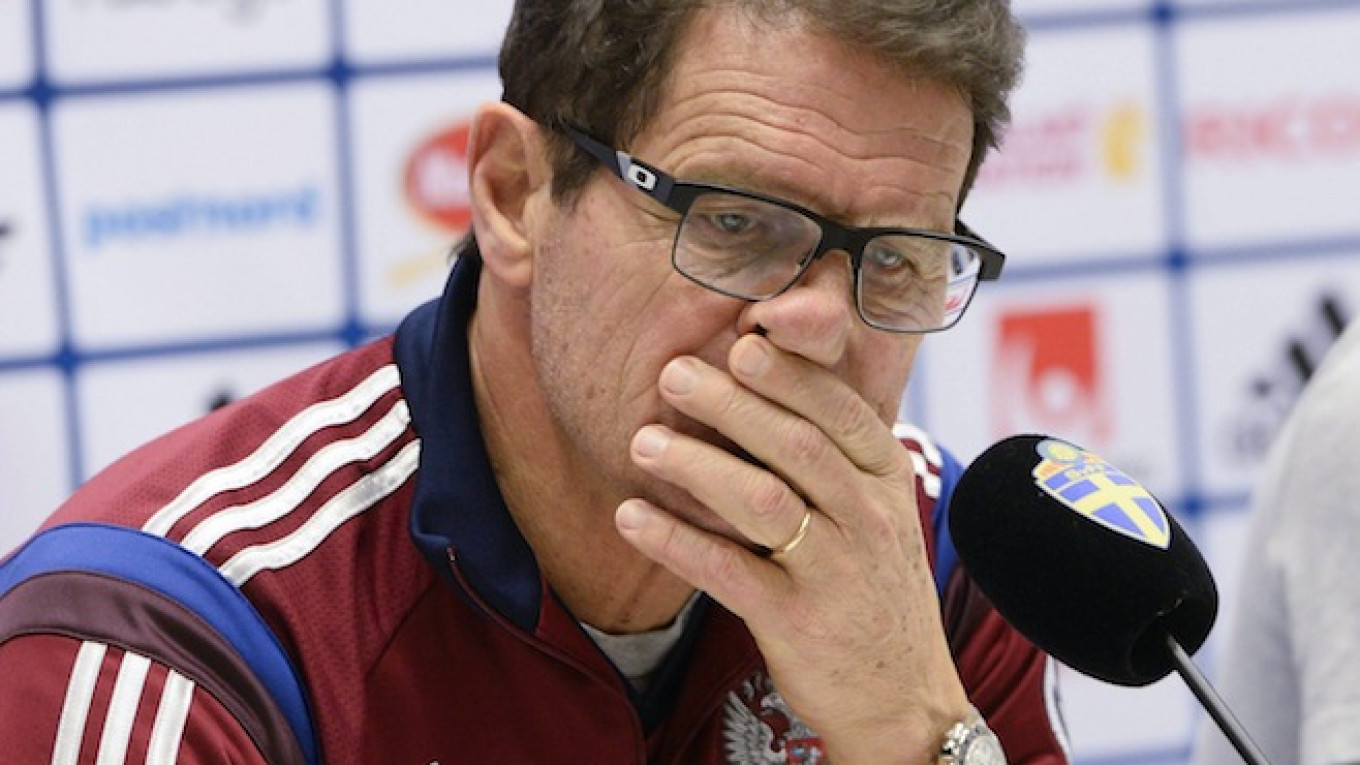Russian Sports Minister Vitaly Mutko said he would have a chat with Fabio Capello, the head coach of Russia's national football team, after its disappointing 1-1 draw against Moldova in a Euro-2016 qualifying match on Sunday.
"We will get out of this [qualification] group in any case, but I was not pleased with the match," Mutko was quoted as saying by the Interfax news agency. "This is not at all convincing. It's bad. Fans aren't pleased, nor am I. I missed out on [Sunday's] Formula One in Sochi to attend the match. In the stands there [at the Sochi Grand Prix], 55,000 people were cheering for [Russian Formula One driver] Daniil Kvyat. I want this kind of love to return to football."
Mutko, who added that he was certain Russia would qualify for Euro-2016, said he would sit down with Capello when the controversial Italian coach returns to the country in a week.
Capello, who was reportedly the highest paid coach at the 2014 World Cup in Brazil, came under fire after the Russian national team crashed out of the tournament without a win.
Russia's humiliating exit from the World Cup — particularly in light of Capello's annual salary of $11 million, according to Forbes — sparked the ire of the country's football fans and politicians. The outspoken leader of the LDPR party, Vladimir Zhirinovsky, called Capello a thief and demanded that he explain the team's dismal performance in front of the State Duma.
Despite public calls for the coach's dismissal, Mutko has repeatedly said that Russia will honor the terms of Capello's contract, which ends after the country hosts the World Cup in 2018.
In September, the Russian Football Union apologized for failing to pay Capello for the third month in a row and vowed to repay its debt as soon as possible.
Contact the author at [email protected]
A Message from The Moscow Times:
Dear readers,
We are facing unprecedented challenges. Russia's Prosecutor General's Office has designated The Moscow Times as an "undesirable" organization, criminalizing our work and putting our staff at risk of prosecution. This follows our earlier unjust labeling as a "foreign agent."
These actions are direct attempts to silence independent journalism in Russia. The authorities claim our work "discredits the decisions of the Russian leadership." We see things differently: we strive to provide accurate, unbiased reporting on Russia.
We, the journalists of The Moscow Times, refuse to be silenced. But to continue our work, we need your help.
Your support, no matter how small, makes a world of difference. If you can, please support us monthly starting from just $2. It's quick to set up, and every contribution makes a significant impact.
By supporting The Moscow Times, you're defending open, independent journalism in the face of repression. Thank you for standing with us.
Remind me later.






